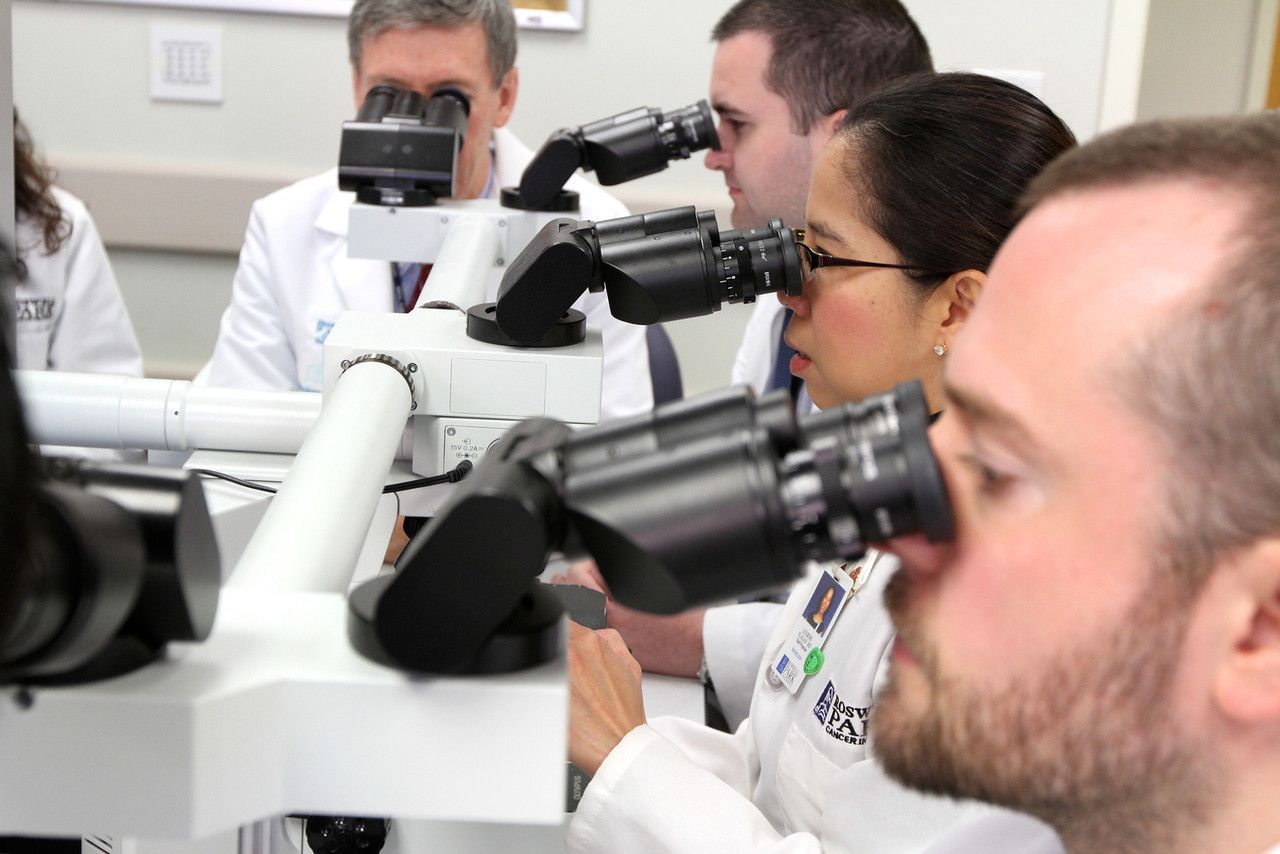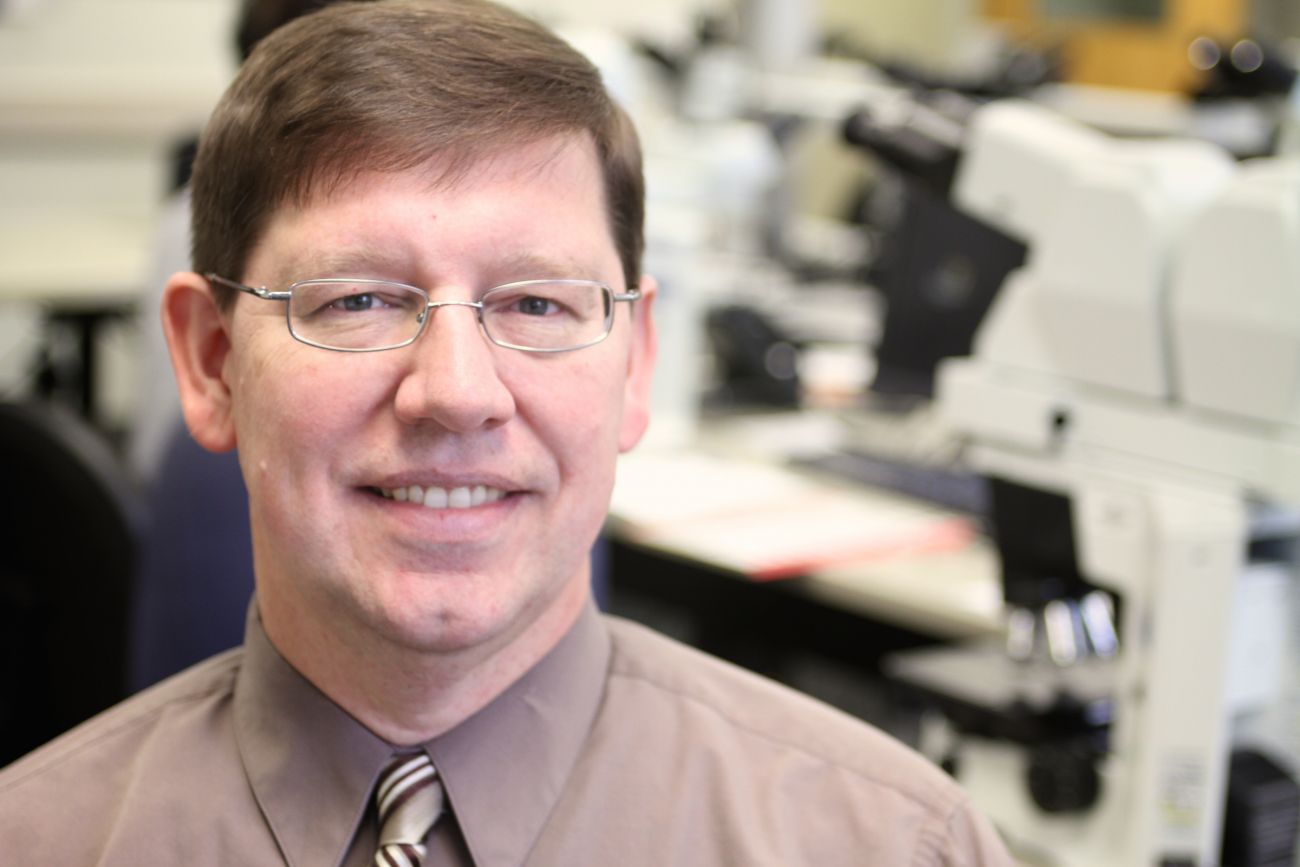Precise diagnosis is what drives decisions about your individualized cancer care plan.
To determine which treatments and procedures will be most effective for your cancer, your doctor will rely on the findings of the pathologist who examines and tests your biopsies to learn more about your specific cancer, including:
What is my lung cancer type?
The most common lung cancer types include:
- Non-small Cell Lung Cancer
- Adenocarcinoma
- Squamous Cell carcinoma
- Large cell (neuroendocrine) carcinoma
- Small Cell Cancer
- Carcinoid tumor
Is my cancer invasive?
- Carcinoma in situ describes a situation in which cancer cells are only in the top layer of the lining of the bronchi, bronchioles or alveoli. This is considered a pre-cancer.
- Invasive or Infiltrating means that the cancer has penetrated into deeper layers of the lung, and can spread.
What is my cancer’s growth pattern?
These terms describe different ways that adenocarcinoma cells may grow:
- Papillary
- Micropapillary
- Acinar
- Mucinous
- Solid
How different does the cancer cell look from a healthy cell?
- Well-differentiated carcinomas look a lot like the normal cell they came from
- Moderately-differentiated looks somewhat like the original cell
- Poorly-differentiated looks very different from original cell
Does the cancer have genetic mutations?
If your tumor is found to have certain genetic mutations, targeted therapy may benefit you. Targeted drugs find and kill cancer cells by detecting specific cell anomalies caused by the mutation, which are found only in the cancer cells and not healthy ones. The gene mutations that currently can be targeted by a drug or novel anti-cancer agent (potential new drug) include the following. Some of these are already FDA-approved, and others are available only through a clinical trial.
- EGFR
- ALK
- BRAF
- R0S1
- RET
- MET
- NTRK
- HER2
Research to discover new gene mutations and to develop new drugs that can target them is ongoing at cancer centers around the world. As a National Cancer Institute-designated Comprehensive Cancer Center, Roswell Park is at the forefront of this kind of research and has several clinical trials that offer access to these newest drugs.
Second look, world of difference
Even if all you need is a second opinion from Roswell Park, we’re here for you!
A second opinion is the best way to reassure you that your initial diagnosis of lung cancer is accurate and the recommended treatment strategy is right for you! Over a century, our specialists have successfully worked with community doctors, and are happy to discuss and share information, as needed.
Second Opinion Game-Changer: Roswell Park pathologists have reported a 10 percent change in overall cancer diagnoses that were made outside of Roswell Park.
When should you seek a second opinion?
It’s always a good idea, but especially important if:
- Your physician or pathologist has not provided you with a full, clear explanation of your pathology report, in a language you understand.
- Your physician tells you that you don’t need a second opinion. A good doctor will suggest that you get another opinion if there are questions about your treatment or diagnosis. If your physician is offended, find a new doctor.
- Your physician wants you to have surgery tomorrow. Almost nothing in the world of cancer care requires that kind of immediacy, except patients with acute leukemia; cases in which a tumor is compressing a vital structure, such as the heart or large blood vessels; or certain other rare conditions.
If you’re still not sure whether to ask for a second opinion, ask yourself:
- Am I confident in the diagnosis or treatment options I’ve been given?
- Am I comfortable with my treating physician?
- Has my physician clearly explained all treatment options — not just the ones he or she prefers?
- Are there clinical research studies offering new treatments for my cancer?
- Was my cancer diagnosed at an office or community hospital setting or in a Comprehensive Cancer Center?
- Does my insurance plan require a second opinion? If not, what type of coverage does it provide for second opinions?
To arrange for a second opinion, call 1-800-ROSWELL (1-800-767-9355) or fill out the online Become a Patient Form.

